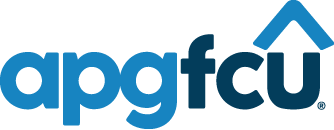Rates and Closing Costs Information
Several factors affect your mortgage rate
Loan Type
The most popular mortgage loan option is the 30-year fixed-rate loan. Shorter-term mortgages, such as a 15-year fixed-rate loan, can save you thousands of dollars in interest payments over the life of the loans through a lower interest rate and a shorter term, but your monthly payments will be higher. An adjustable-rate mortgage may get you started with a lower interest rate than a fixed-rate mortgage, but your payments could increase when the loan interest rate changes.
Equity
The larger the down payment you have when purchasing, or the more equity you have in the home when refinancing, the better your interest rate is likely to be. The reason for this is tied to risk. The more equity you have, the less risk a lender has in recouping losses if the loan can’t be repaid.
Credit History
Your credit score can impact both the interest rate and closing costs on your mortgage loan. Generally, the higher your credit score, the better the loan rate and the lower the loan costs. The reason for this is again tied to perceived risk. High credit scores demonstrate an ability and willingness on the part of a consumer to meet his or her financial obligations. Lower scores can demonstrate challenges in this regard, and the risk these challenges represent is generally offset with higher loan rates and/or fees.
Annual Percentage Rate (APR)
Annual percentage rate (APR) is a tool used to compare loans across different loan programs, and the federal Truth in Lending Act requires mortgage lenders to disclose the APR when they advertise an interest rate. The APR is designed to represent the true cost of the loan to the borrower, expressed in the form of a yearly rate. The purpose of a consistent expression of APR is to prevent lenders from hiding fees and up-front costs behind low advertised interest rates.
Should I Pay Points?
Points are fees paid at closing that reduce your interest rate and thus reduce your monthly payment and total interest due over the life of a loan.
Deciding whether to pay points depends on how long you plan to keep the loan. A general rule of thumb is that if you intend to keep the loan for at least five years, it makes sense to consider paying points. If you think that it’s more likely you’ll move within five years, then you may be better off with a zero-point rate option.
Lenders allow you to choose from a variety of rate and point combinations for the same loan product. Therefore, when comparing rates from different lenders, make sure you compare the associated points and rate combinations of the offered loan program. The published annual percentage rate (APR) is a tool used to compare different terms, offered rates, and points among different lenders and programs.
Lock in Your Interest Rate
A rate lock or lock commitment is a lender's promise to hold a certain interest rate and a certain number of points for you for a specified period of time while your loan application is processed. If interest rates rise after you’ve locked your rate, the lender will honor your lower “locked” rate for the specified period of time. However, if interest rates fall after you’ve locked your rate, you’ll be expected to proceed with your higher locked rate.
Closing Costs
In addition to interest rates, reputation and service, closing costs are an important consideration for consumers when comparing mortgage lenders. So, it helps to know what fees are actually charged by the mortgage lender and what fees will be about the same, no matter what mortgage company is chosen.
Typical lender fees will include an origination fee, processing fee and/or underwriting fee. These are the fees that a lender charges for its work on a loan, and should be the primary focus when comparing one lender’s fees to another.
Third-party fees, including items such as a property appraisal, credit report, flood determination, title insurance, closing or settlement fee, and recording fee, will generally be similar from one lender to another.
Lastly, funds collected to establish an escrow account and any state, county or municipal taxes will be the same no matter the lender chosen.
